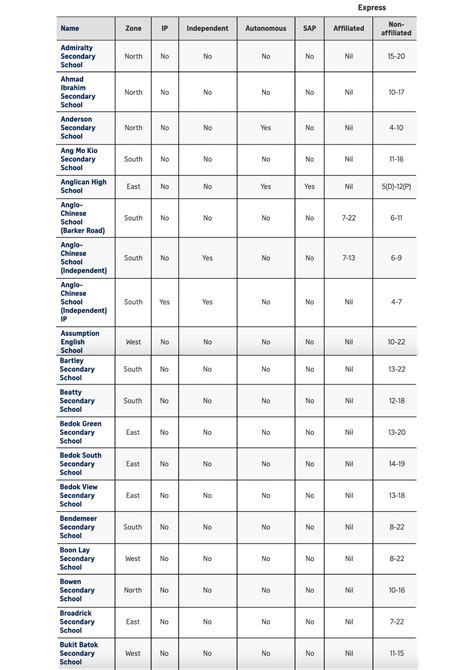Respect is a fundamental component of a healthy and productive workplace. When employees feel valued and respected by their colleagues and superiors, they are more likely to be engaged, motivated, and productive. However, when respect is lacking, it can create a hostile and toxic work environment that can negatively impact everyone involved.

If you’re feeling like you’re not being respected at work, you’re not alone. A recent study by the Society for Human Resource Management (SHRM) found that 27% of employees reported experiencing disrespectful behavior in the workplace. This behavior can take many forms, from subtle snubs to overt acts of aggression.
Here are 7 signs that you’re not respected at work:
- You’re constantly interrupted or talked over.
When people don’t respect you, they may not hesitate to interrupt you when you’re speaking or talk over you altogether. This can be a frustrating and demeaning experience, especially if it happens repeatedly.
- Your opinions are dismissed or ignored.
If your colleagues and superiors don’t value your input, they may dismiss your opinions out of hand or simply ignore them altogether. This can make it difficult to feel like you’re part of the team and can lead to feelings of isolation and frustration.
- You’re given the worst assignments or projects.
When people don’t respect you, they may be more likely to give you the worst assignments or projects. This can be a way of sending the message that you’re not valued or that your work isn’t important.
- You’re not included in important meetings or discussions.
If you’re not being included in important meetings or discussions, it may be a sign that your colleagues and superiors don’t value your input or that they don’t think you’re capable of contributing to the team.
- You’re treated differently than other employees.
If you’re being treated differently than other employees, it may be a sign of disrespect. This could include being excluded from social events, being given less favorable treatment, or being subjected to different standards of behavior.
- You’re subjected to negative or hostile behavior.
Negative or hostile behavior can take many forms, from verbal abuse to physical intimidation. If you’re being subjected to this type of behavior, it’s a clear sign of disrespect.
- You’re not given credit for your work.
If you’re not being given credit for your work, it may be a sign that your colleagues and superiors don’t value your contributions. This can be a frustrating and demoralizing experience, especially if you’re working hard and not getting the recognition you deserve.
If you’re experiencing any of these signs, it’s important to address the issue head-on. Talk to your colleagues and superiors about how you’re feeling. If they’re not receptive, you may need to take further action, such as filing a complaint with your HR department.
Effective Strategies for Dealing with Disrespect at Work
If you’re experiencing disrespect at work, there are a number of things you can do to address the issue:
- Talk to your colleagues and superiors.
The first step is to talk to the people who are disrespecting you. Be assertive but respectful, and explain how their behavior is making you feel. If they’re not receptive, you may need to take further action.
- File a complaint with your HR department.
If you’re unable to resolve the issue on your own, you may need to file a complaint with your HR department. HR can investigate the complaint and take appropriate action.
- Document the disrespectful behavior.
If you’re experiencing disrespect at work, it’s important to document the behavior. This can be done by keeping a journal or by taking screenshots of emails or other communications. This documentation will be helpful if you need to file a complaint or take further action.
- Set boundaries.
It’s important to set boundaries with people who are disrespecting you. Let them know that their behavior is unacceptable and that you will not tolerate it. If they continue to disrespect you, you may need to limit your interactions with them.
- Take care of yourself.
Dealing with disrespect at work can be stressful and emotionally draining. It’s important to take care of yourself during this time. Make sure to get enough sleep, eat healthy foods, and exercise regularly. You may also want to talk to a therapist or counselor about how you’re feeling.
Tips and Tricks for Dealing with Disrespect at Work
Here are a few tips and tricks for dealing with disrespect at work:
- Stay calm and professional.
It can be difficult to stay calm when you’re being disrespected, but it’s important to try. Reacting emotionally will only make the situation worse.
- Be assertive.
Don’t be afraid to stand up for yourself. Let the person who is disrespecting you know that their behavior is unacceptable.
- Use humor.
Humor can be a powerful tool for dealing with disrespect. If you can find a way to laugh at the situation, it will help you to defuse the tension and make it less stressful.
- Seek support.
Talk to your friends, family, or therapist about what you’re going through. They can offer you support and advice.
Common Mistakes to Avoid
Here are a few common mistakes to avoid when dealing with disrespect at work:
- Don’t ignore the issue.
Ignoring the issue will only make it worse. Address the problem head-on and take steps to resolve it.
- Don’t gossip about the person who is disrespecting you.
Gossiping will only make the situation worse. Focus on finding a solution to the problem.
- Don’t retaliate.
Retaliating will only make the situation worse. Stay calm and professional, and let the appropriate people handle the issue.
Conclusion
Dealing with disrespect at work can be a challenging and frustrating experience. However, by following












